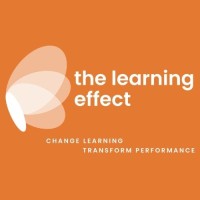Examine the application of social media to support learning
Social media is something that everyone uses on a daily basis. It is very rare to find someone now that hasn’t used it in some way, whether that is a post on Facebook, scrolling through YouTube or Twitter, or looking at the latest dance moves on TikTok. The number of people online; discussing their thoughts, opinions, facts, and experiences, makes it a wealth of knowledge if you know how to distinguish what is useful, and what isn’t. Youtube, for example, has a lot of information on it, from news broadcasts to people with master’s degrees or doctorates helping to teach others. Some of these channels I have used personally such as CrashCourse, Advanced Placement, and other channels that help to teach or go over textbooks. Because of this, so long as you make sure that the channels you are watching are teaching accurate information, (are verified, recommended by your school, etc.) they can be extremely helpful resources for someone who might learn a little differently or need to review something before a test. Social media can not only help education by providing walkthroughs and review classes online, but they can also help teach students, and adults, to see other people’s ways of thinking; to witness events such as the Ukrainian war, and to be able to see firsthand what is happening and what your choices can do to other people.
Explain personalized learning and its relation to learning theory
Developing and maintaining a PLN is extremely important as it directly affects how you learn. When I started this class I didn’t know what a PLN was, and since I prefer to work alone I didn’t understand its importance. Focusing on your learning environment has a direct effect on how you learn; It changes how your work ethic, organizational skills, and sometimes even your motivation. The people that you have in your PLN are just as important. Each person will make an effect, and because of that, it is important to be aware of the effect others are having on you. Your learning environment can have an effect on what you do and how you work, but the people can affect your outlook, practice, and style you work in. Learning how to manipulate your PLN can help to improve your work, workspace, comfort, and knowledge. It can even improve your mood, and give you new experiences and goals depending on who you include. This connects to the Showcase post I made as well as my Second Wow and Wonder post about the butterfly effect and how one change can make a big effect later on in life.
Recognize that the Internet is not a neutral or equal space for everyone
As with any conversation or interaction with others, the internet has all sorts of differing opinions and different cultural beliefs. Because of this, it makes a very diverse environment for people who are willing to look at different sides of a story, however, this also means that there are other things that are not so, harmless. Social media platforms have freedom of speech, and as long as you aren’t flagged by an algorithm or another human, you can say basically whatever you want. These platforms try to mitigate and control both misinformation, and inappropriate comments by flagging these types of posts, and creating a computer algorithm to find and take down things that go against the rules of the platform. YouTube provides examples of both voices being silenced, and voices being made fun of. YouTube content creators tend to lean towards drama to get news, and that can come in many forms, some of the most popular being reaction channels such as Kallmekris, Daz Games, or Reaction Time. While I personally enjoy watching some of these channels, some of them (I have not listed) can be extremely toxic and prefer to make fun of others with the intention to only get views and put down others. This is something that happens on multiple platforms, but with YouTube’s centre on videos, it is the most obvious and is something that has to be watched out for.
Apply social media to develop a personal learning network in support of your personal and/or professional development
In terms of developing connections, social media is the main way that it is done now. It provides people with the ability to hide behind their screens, share only the information that they want to share, and be protected in the comfort of their own homes. But social media is also extremely useful in building a PLN; not only does it provide a safe atmosphere to communicate at any time or location regardless of where the rest of your PLN is, but it gives people the chance to expand their network far beyond what they would have been able to get without it. They can use platforms like Indeed to reach out businesswise and be put in contact with people who could help them further their career, they could post videos to get the attention of scouts, or they could participate in chats or forums that students or groups with similar interests put together to help each other. By using social media people are able to group together and get support, advice, or friendships that they wouldn’t have been able to find without the help of the internet.
Identify privacy issues and practice online behaviours that are legal, safe, consensual, and ethical
Privacy is something that should be taught in classes and should be something that everyone considered before using any form of social media. It is too easy now to find out everything about someone, where they live, who they are, where they are from, etc. All platforms have their own privacy warnings, and rules, however, they ultimately can’t police what you decide to post in reference to yourself, hence why you see stories online of criminals bragging about their heists and getting caught by police later. Piper brought up this concern in their First Wow and Wonder Post. Doing things like stoking, inappropriate comments, and other things that make others uncomfortable can result in the individual losing their account, but that doesn’t stop them from making a new account and trying again. Learning how to monitor what you post is not only important for your safety, but can also play a huge role in the people that will interact with you, and the jobs you might get.
Recognize data ownership and licensing (Creative Commons, Copyright, Fair Dealing, and Public Domain) as a core practice when creating, sharing, or using resources online
This goes hand in hand with protecting yourself, but protecting your work is also something that has always been a massive undertaking on social media. Stealing, copying or using other people’s work is not allowed, and platforms like YouTube have both, people and computer algorithms in place to search for and delete content that plagiarises from others. If you do not have permission to use someone else work it could get taken down, either by YouTube or by someone reporting it to the creator. Most platforms make it very easy to read up on, YouTube has a bunch of pages that are easy to read and hold a lot of detail about what you can or can not do. Plagiarism is something that is taught, however, it isn’t something that is discussed in terms of social media, and because of this people don’t understand or don’t care about what might happen if they do it, they also don’t get told just what plagiarism is, because it’s more then just copying someone else’s work. I talked a bit more about how I found it so surprising what people are able to actually get away with on my Fifth Wow and Wonder Post. I also would like to include what Mia said in her Fifth Wow and Wonder post because I feel that it is something that should be included more in teaching. Because students are taught to think of plagiarism more in terms of copying a friend’s paper, a lot of plagiarism goes unnoticed online despite what the platforms try to do.
Practice digital, networked, and open literacies in support of learning about social media and personalized learning
During this class, I worked with a lot of new technology and people who I had never met. I have always limited my use of social media to friends and family only, and very rarely post or comment on the platforms that I use. This class was set up so that even though it was online, I was still able to connect with other people, and while at the beginning that worried me, (I am very introverted) in the end it actually helped me a lot, with not only understanding the course better but also feeling connected as my group tended to experience similar confusions. This course also had me using technology like Github or WordPress, both of which I had no idea how to use, but actually gave me a better way of learning that worked a lot better with my learning style. It allowed me to be more flexible in my work style and to easily collaborate with others while also contributing to the class. I also realized that I vastly prefer this method of writing to the essays that I am more used to writing, as it enables me to be able to include and go into depth about more information without being as concerned about formatting or formality. It gave me more tools to be able to put into practice in the hopes to be able to teach more effectively to more people. I talked about this in my Fourth Wow and Wonder Post. This course taught me a lot about multiple ways to learn and just how important it is to form a PLN with your classmates no matter how shy you are!
I was running out of words, so these are the sources that I used over the term, and throughout my blog posts that I think reflect what surprised me the most or really made me think. They are the ones that I got my information from above, although I didn’t directly quote any of them.
These sources I used when working on my section of the final project also influenced my view on social media and how it runs.
https://www.youtube.com/intl/ALL_ca/howyoutubeworks/our-commitments/managing-harmful-content/
https://www.youtube.com/intl/ALL_ca/howyoutubeworks/policies/community-guidelines/
https://www.youtube.com/intl/ALL_ca/howyoutubeworks/our-commitments/fighting-misinformation/
https://mashable.com/article/youtube-human-content-moderation
Some other opinions and things that I either found out or am now thinking about were things that my other group members talked about when working on their sections of the group project or that they mentioned when I read their blogs.









Recent Comments